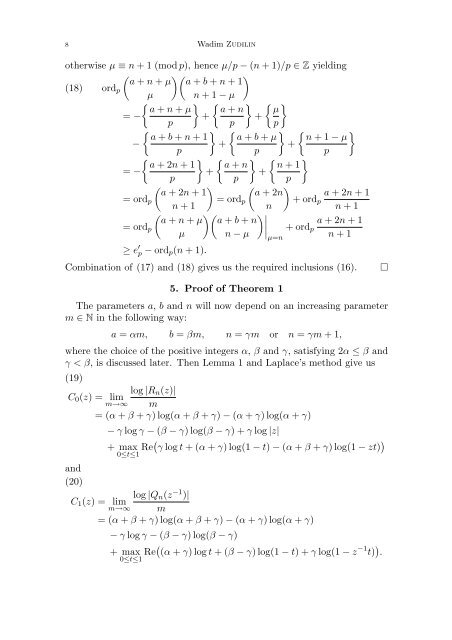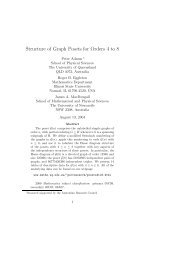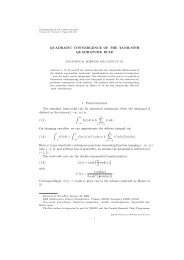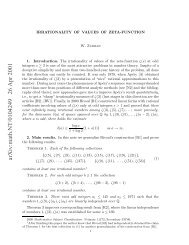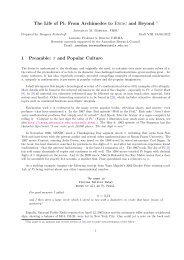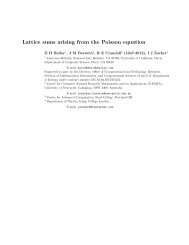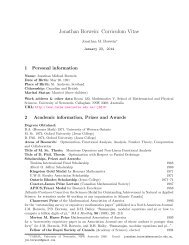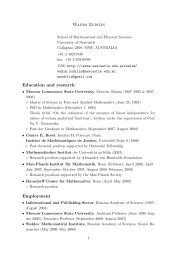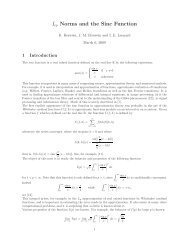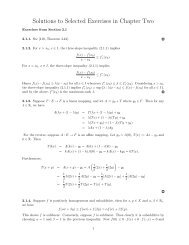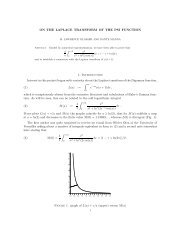A new lower bound for (3/2)k - Wadim Zudilin
A new lower bound for (3/2)k - Wadim Zudilin
A new lower bound for (3/2)k - Wadim Zudilin
You also want an ePaper? Increase the reach of your titles
YUMPU automatically turns print PDFs into web optimized ePapers that Google loves.
8 <strong>Wadim</strong> <strong>Zudilin</strong>otherwise µ ≡ n + 1 (mod p), hence µ/p − (n + 1)/p ∈ Z yielding( )( )a + n + µ a + b + n + 1(18) ord pµ n + 1 − µ{ } { } { }a + n + µ a + n µ= −+ +pp p{ } { } { }a + b + n + 1 a + b + µ n + 1 − µ−++ppp{ } { } { }a + 2n + 1 a + n n + 1= −+ +pp p( ) ( )a + 2n + 1 a + 2n a + 2n + 1= ord p = ord p + ord pn + 1nn + 1( )( )∣ a + n + µ a + b + n ∣∣∣µ=n a + 2n + 1= ord p + ord pµ n − µn + 1≥ e ′ p − ord p (n + 1).Combination of (17) and (18) gives us the required inclusions (16).□5. Proof of Theorem 1The parameters a, b and n will now depend on an increasing parameterm ∈ N in the following way:a = αm, b = βm, n = γm or n = γm + 1,where the choice of the positive integers α, β and γ, satisfying 2α ≤ β andγ < β, is discussed later. Then Lemma 1 and Laplace’s method give us(19)log |R n (z)|C 0 (z) = limm→∞ m= (α + β + γ) log(α + β + γ) − (α + γ) log(α + γ)− γ log γ − (β − γ) log(β − γ) + γ log |z|+ max Re( γ log t + (α + γ) log(1 − t) − (α + β + γ) log(1 − zt) )0≤t≤1and(20)log |Q n (z −1 )|C 1 (z) = limm→∞ m= (α + β + γ) log(α + β + γ) − (α + γ) log(α + γ)− γ log γ − (β − γ) log(β − γ)+ max0≤t≤1 Re( (α + γ) log t + (β − γ) log(1 − t) + γ log(1 − z −1 t) ) .


